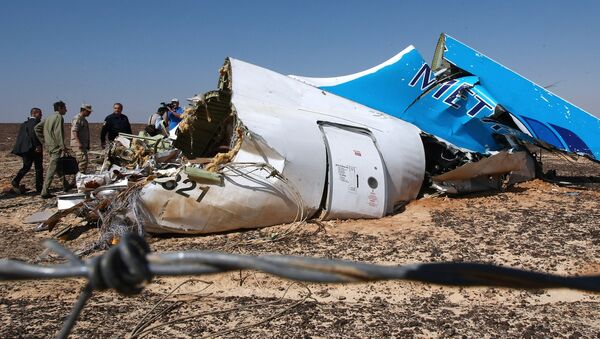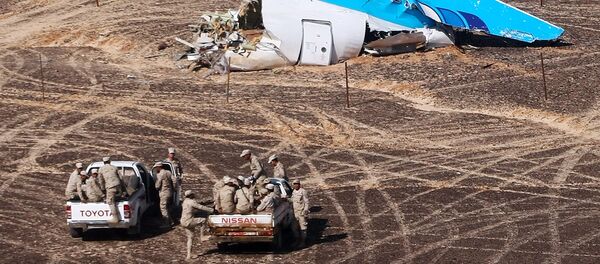“According to our specialists’ assessment, a homemade explosive device with an equivalent of 1 kilogram of TNT on board the aircraft exploded, which lead to the plane 'breaking up' in midair, which would explain the scattering of the plane’s fuselage across a wide area,” Bortnikov said during a meeting.
Russian Special Forces have determined the A321 passenger jet that crashed over Egypt’s Sinai Peninsula on October 31 killing all 224 on board was a terrorist act.
“We can definitely say this was a terrorist act,” Russian Federal Security Service head Alexander Bortnikov said during a meeting with Russian President Vladimir Putin.
"Investigations have been completed on the personal belongings, baggage, and parts of the plane that crashed in Egypt on October 31. As a result of expertise conducted on all of the items, of which I mentioned, traces of foreign explosive material were exposed,” Bortnikov told the Russian president during a meeting on the official conclusion that the aircraft was exploded in mid-air by a homemade explosive device.
He also said that Russia offers $50mln for the information on those who might have been involved in the terrorist attack on the A321.
A Russian Airbus A321 with 224 people on board crashed on October 31 while en route from Egypt’s resort city of Sharm el-Sheikh to St. Petersburg, leaving no survivors. Various possible causes of the tragedy have been set out by aviation experts, ranging from a terrorist act to a technical glitch.



